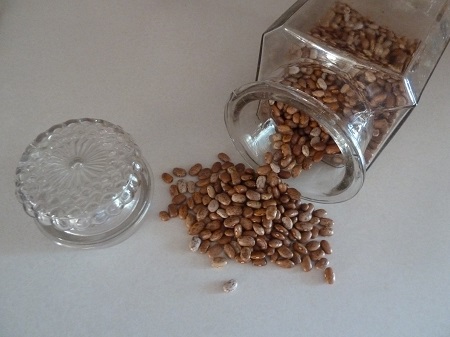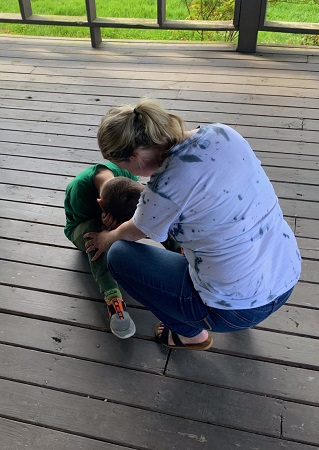Meet Yourself Coming and Going
 Do you ever meet yourself coming and going? With too many irons in the fire, you start one job, walk away, and see another job that needs attention. You begin the new chore, turn around, and see something else to do. After moving from one task to another, you realize you have finished nothing.
Do you ever meet yourself coming and going? With too many irons in the fire, you start one job, walk away, and see another job that needs attention. You begin the new chore, turn around, and see something else to do. After moving from one task to another, you realize you have finished nothing.
Does that sound familiar?
To meet yourself coming and going, you feel pulled in several directions.
You find yourself with:
- Too much to do
- Little time to do it
- Uncertainty when you will get everything done
Too many chores usually mean too little rest.
You never find time to:
- Sleep
- Relax
- Enjoy life
You must slow down or you will get down.
Failure to rest eventually means you run out of steam. You either give up or get sick. No one can go forever. You have to take care of yourself in order to do what needs to be done.
In order to keep going, you first learn to be still — how to:
- Rest
- Relax
- Recharge your strength.
You focus on what must be done rather than all you want to do.
“The Lord will watch over your coming and going both now and forevermore” (Psalm 121:8 NIV).
Do you have an expression you want explained or a thought about this one? If so, please comment below.
Subscribe to receive my weekly posts by email and receive a free copy of “Words of Hope for Days that Hurt.”
If you enjoyed this post, please share it with your friends.
Thank you to the person who made this suggestion, based on my recent activity. I confess I must plead guilty as charged.
 Last week we explored
Last week we explored  Few of us like to sweat bullets – physical or emotional.
Few of us like to sweat bullets – physical or emotional. When we serve soup, we want no bones about it. We may cook bones in our soup, but we take them out when we eat. Swallowed bones often result in a visit to the hospital.
When we serve soup, we want no bones about it. We may cook bones in our soup, but we take them out when we eat. Swallowed bones often result in a visit to the hospital. Lions have a big head, a loud roar, and a reputation as king of the jungle. Although big, strong, and fast, lions can be caught and controlled by smaller, weaker, and slower lion tamers.
Lions have a big head, a loud roar, and a reputation as king of the jungle. Although big, strong, and fast, lions can be caught and controlled by smaller, weaker, and slower lion tamers. Many times, Lisa Gupton told her show choir students, “Let’s get the show on the road.” She was telling them, “Get ready. It is time to perform.”
Many times, Lisa Gupton told her show choir students, “Let’s get the show on the road.” She was telling them, “Get ready. It is time to perform.” Most of us know people who cannot keep a secret. They always find a way to spill the beans.
Most of us know people who cannot keep a secret. They always find a way to spill the beans. Years ago, people treated many medical emergencies at home. One common remedy was to pour or rub salt in a wound. That solution often caused more pain than the original problem.
Years ago, people treated many medical emergencies at home. One common remedy was to pour or rub salt in a wound. That solution often caused more pain than the original problem. How many times have we attempted an impossible task? We try to do something no one can do. Remember, we don’t have to boil the ocean.
How many times have we attempted an impossible task? We try to do something no one can do. Remember, we don’t have to boil the ocean. “Tell me the truth. You will feel better if you do. Confession is good for the soul.”
“Tell me the truth. You will feel better if you do. Confession is good for the soul.”